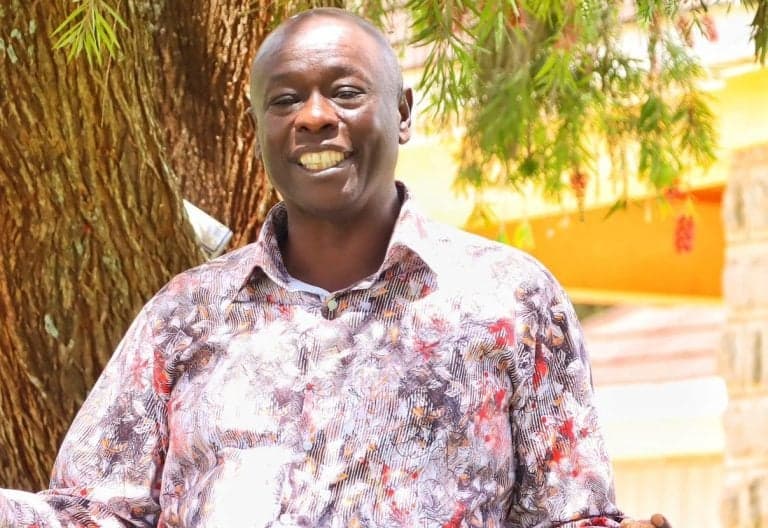We're loading the full news article for you. This includes the article content, images, author information, and related articles.
Former Nyeri Town MP Ngunjiri Wambugu analyses Rigathi Gachagua’s high-stakes by-election strategy as a crucial test of his post-impeachment influence, predicting a narrative of victimhood regardless of the outcome.

NAIROBI – As Kenya heads into a series of high-stakes by-elections this Thursday, November 27, 2025, former Nyeri Town Member of Parliament Ngunjiri Wambugu has offered a critical analysis of the political strategy employed by his former ally, Democracy for Citizens Party (DCP) leader and former Deputy President Rigathi Gachagua. Wambugu predicts that Gachagua’s increasingly confrontational behaviour is a calculated manoeuvre designed to consolidate his base, with a built-in narrative of state persecution that will be deployed whether his preferred candidates win or lose.
The upcoming mini-polls, spanning 24 electoral areas, are widely seen as a national dress rehearsal for the 2027 General Election and the first major test for the newly constituted Independent Electoral and Boundaries Commission (IEBC). For Gachagua, however, they represent a pivotal moment to assert his dominance as the political kingpin of the Mt. Kenya region following his impeachment in October 2024 and subsequent reinvention as an opposition figure.
Wambugu, who has become a vocal critic of Gachagua since their public fallout in May 2025 over ideological differences, has been closely monitoring the former DP's campaign activities. A key focus of his analysis is the heated contest in Mbeere North constituency. In a series of public statements starting on Tuesday, November 18, 2025, Wambugu forecasted that Gachagua might be forced into an early retreat from the constituency, suggesting the political climate was becoming untenable. "I hear the heat might be more than Jofri expected in Mbeere North and he will not be able to stay there until the 27th as he promised," Wambugu stated, claiming that voters were not responding positively to what he termed Gachagua's "bitterness."
This aggressive posturing extends beyond Mbeere North. Gachagua has made serious allegations of planned election malpractice in the Magarini constituency by-election, directly accusing IEBC Vice Chairperson Fahima Araphat Abdallah of attempting to rig the poll. In a formal letter to the IEBC, Gachagua alleged that Abdallah had coerced electoral officials and was working to favour a rival candidate, claims the ruling United Democratic Alliance (UDA) party dismissed as a "political tantrum" from a leader sensing defeat. Wambugu’s analysis suggests these pre-emptive accusations are a core part of Gachagua's strategy. By questioning the integrity of the process beforehand, Gachagua lays the groundwork to cry foul if his candidates lose, thereby energizing his supporters with a narrative of being targeted by state machinery.
According to Wambugu’s political calculus, Gachagua has engineered a situation where he can claim a political victory regardless of the official results announced by the IEBC. If the candidates he backs secure wins, particularly in the fiercely contested Mt. Kenya region, Gachagua will portray it as a popular validation of his leadership and a firm rejection of President William Ruto’s administration. Such an outcome would significantly bolster his claim as the undisputed regional spokesperson.
Conversely, and more likely according to Wambugu's commentary, if his candidates lose, Gachagua will point to his prior warnings as proof of a stolen election. This narrative aligns with Wambugu's earlier concerns, voiced on May 22, 2025, that Gachagua's rhetoric about potential poll mismanagement could be setting the stage for post-election conflict. This strategy allows Gachagua to maintain his political relevance and consolidate his base by framing himself as a victim of a powerful and unfair system, a narrative he has cultivated since his impeachment.
This political drama is unfolding against the backdrop of a deeply fractured Mt. Kenya political landscape. Wambugu’s split from Gachagua was rooted in his opposition to the former DP's push to establish a single, dominant political party for the region through his DCP. Wambugu has consistently argued against what he calls a potential "one-party dictatorship," advocating for multiparty democracy.
The by-elections have intensified the simmering turf war between Gachagua and the current Deputy President, Kithure Kindiki, for regional supremacy. Both leaders have been campaigning heavily in Mbeere North, with Kindiki launching a direct attack on November 19, 2025, dismissing Gachagua's attempts to anoint himself kingpin. “I am on the inside (government). You are outside, and yet you are telling us you are the one in charge,” Kindiki stated, asserting his own seniority in the region. The outcome of this and other races will be a significant barometer of who holds greater sway over the Mt. Kenya electorate, a bloc historically known for its unity but now facing unprecedented division. As the nation awaits the results of Thursday's polls, the focus is not just on the candidates, but on the political future of Rigathi Gachagua and the strategic direction of the entire Mt. Kenya region ahead of 2027.
Keep the conversation in one place—threads here stay linked to the story and in the forums.
Sign in to start a discussion
Start a conversation about this story and keep it linked here.
Other hot threads
E-sports and Gaming Community in Kenya
Active 9 months ago
The Role of Technology in Modern Agriculture (AgriTech)
Active 9 months ago
Popular Recreational Activities Across Counties
Active 9 months ago
Investing in Youth Sports Development Programs
Active 9 months ago
Key figures and persons of interest featured in this article